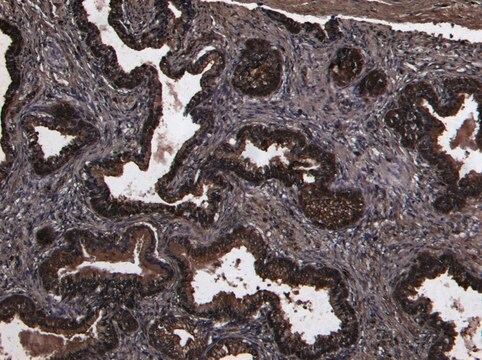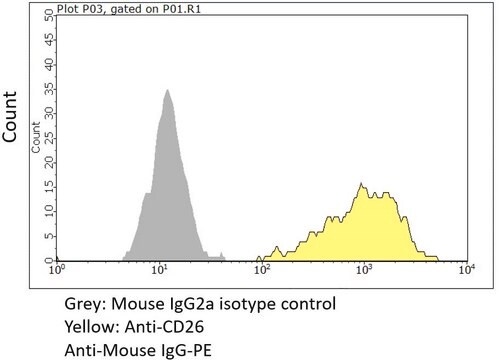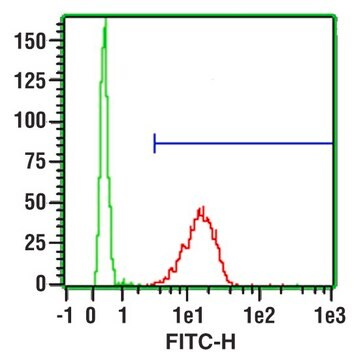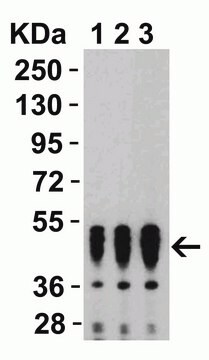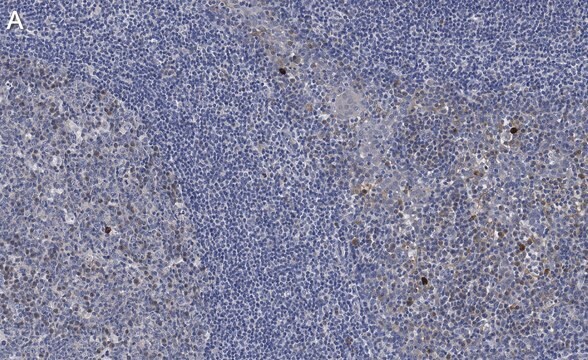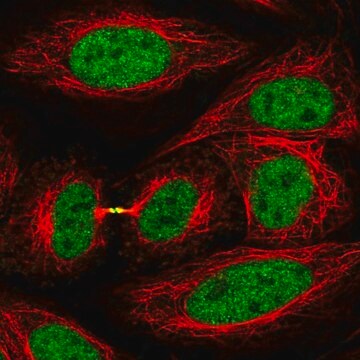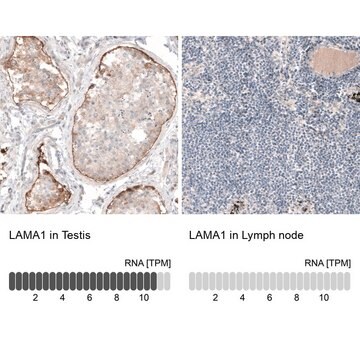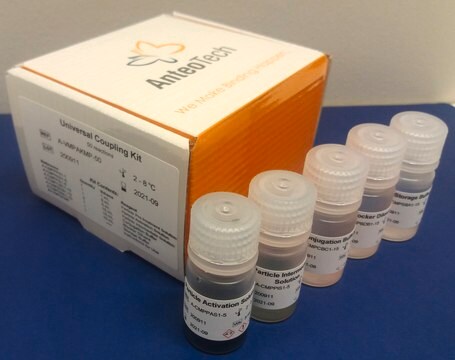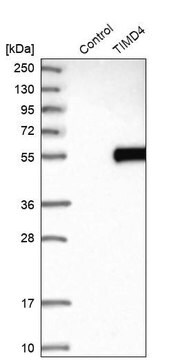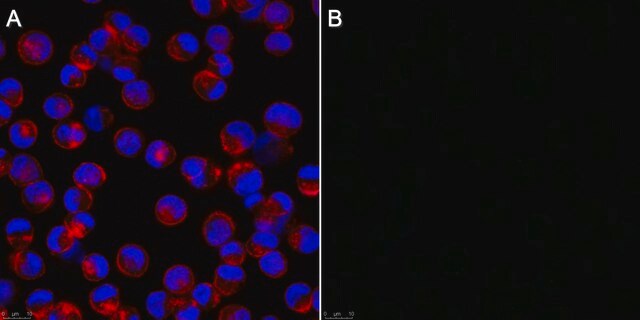SAB4200230
Anti-DPP4/CD26 antibody, Mouse monoclonal
clone A6H, purified from hybridoma cell culture
Sinónimos:
Monoclonal Anti-ADABP, Monoclonal Anti-ADCP2, Monoclonal Anti-DPPIV, Monoclonal Anti-TP103, Monoclonal Anti-dipeptidyl-peptidase 4
About This Item
Productos recomendados
origen biológico
mouse
conjugado
unconjugated
forma del anticuerpo
purified from hybridoma cell culture
tipo de anticuerpo
primary antibodies
clon
A6H, monoclonal
Formulario
buffered aqueous solution
reactividad de especies
human
concentración
~4.0 mg/mL
técnicas
flow cytometry: suitable
immunocytochemistry: suitable
immunohistochemistry: suitable
indirect ELISA: suitable
indirect immunofluorescence: 20-40 μg/mL using methanol/acetone fixed HT-29 cells
isotipo
IgG1
Condiciones de envío
dry ice
temp. de almacenamiento
−20°C
modificación del objetivo postraduccional
unmodified
Información sobre el gen
human ... DPP4(1803)
Descripción general
Inmunógeno
Aplicación
- enzyme linked immuno sorbent assay (ELISA)
- immunocytochemistry
- immunohistochemistry
- flow cytometry
Acciones bioquímicas o fisiológicas
Forma física
Cláusula de descargo de responsabilidad
¿No encuentra el producto adecuado?
Pruebe nuestro Herramienta de selección de productos.
Código de clase de almacenamiento
12 - Non Combustible Liquids
Clase de riesgo para el agua (WGK)
WGK 1
Punto de inflamabilidad (°F)
Not applicable
Punto de inflamabilidad (°C)
Not applicable
Elija entre una de las versiones más recientes:
Certificados de análisis (COA)
¿No ve la versión correcta?
Si necesita una versión concreta, puede buscar un certificado específico por el número de lote.
¿Ya tiene este producto?
Encuentre la documentación para los productos que ha comprado recientemente en la Biblioteca de documentos.
Nuestro equipo de científicos tiene experiencia en todas las áreas de investigación: Ciencias de la vida, Ciencia de los materiales, Síntesis química, Cromatografía, Analítica y muchas otras.
Póngase en contacto con el Servicio técnico